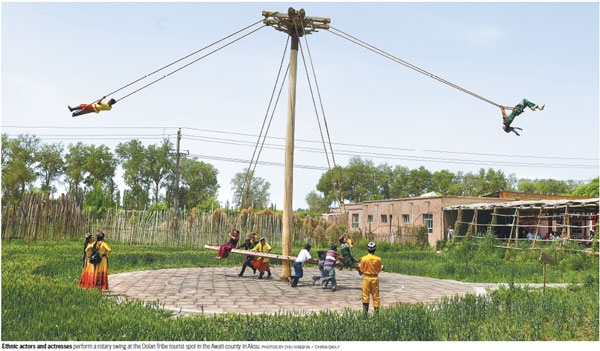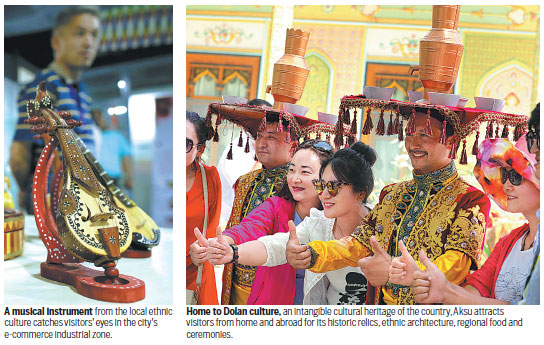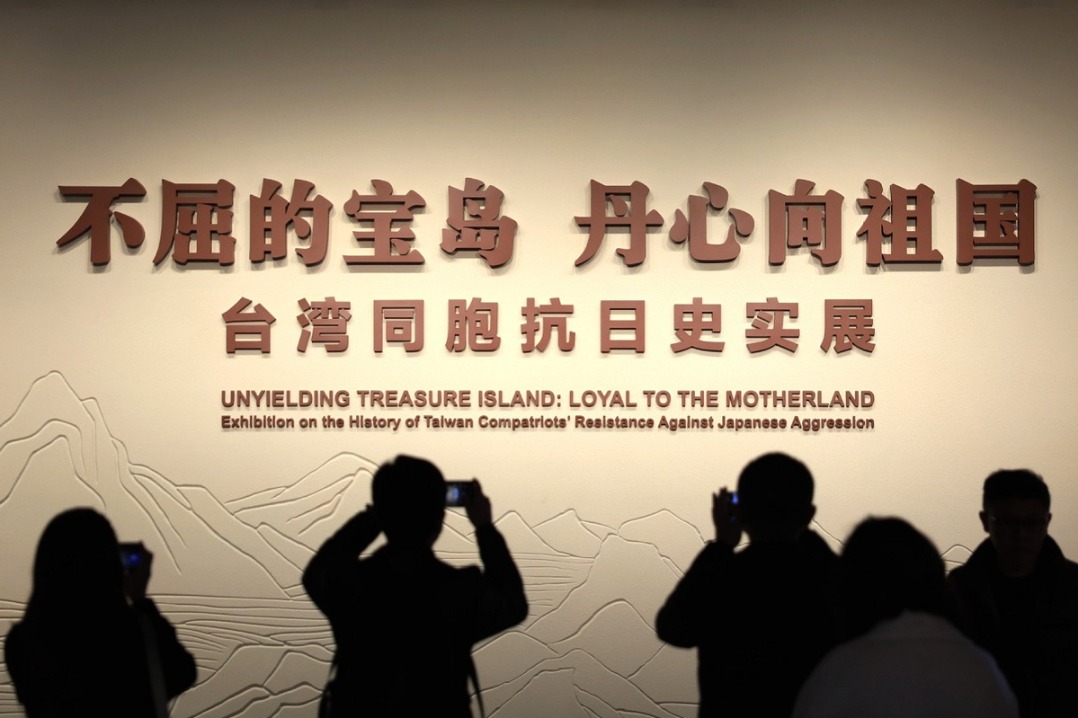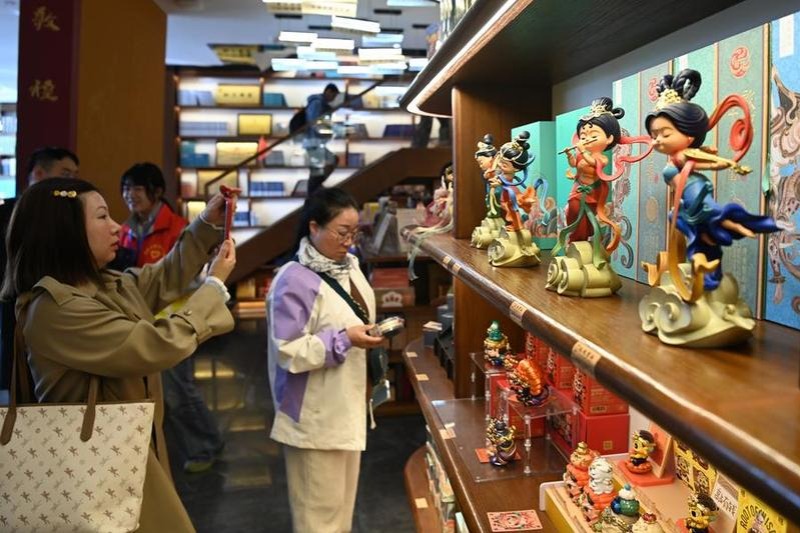Aksu: land of ancient history and industry

Xinjiang Uygur autonomous region continues to uphold traditions of textiles, trade and culture with modern flair
As a vital station of the ancient Silk Road, Aksu city in the southern part of the Xinjiang Uygur autonomous region has become a spotlight at home and abroad for its incredible natural view and multi-ethnic cultures.
More than 2,000 years ago, mules, horses and camels walked through the ancient city, and now, when gazing at the Tarim Basin and Tianshan Mountains, people can still feel the vastness and glory of the region.
With long daylight hours and large temperature difference between day and night, Aksu is one of the major production bases in China for walnuts, red dates and fruits such as grapes and melons.
The area is the location of the ancient Chinese states of Qiuci and Kumak, the first bridges for Buddhist culture from India to enter China. There are many farmer painters in the region's Dolan Tribe, who haven't had professional training but have won much praise.
Covering more than 266,670 hectares of cotton fields, Aksu accounts for some 11 percent of the country's total cotton production. While Aksu is pushing forward its modernization and industrialization, more companies are moving to the farms.
They have created many job opportunities for locals and educated a large number of skilled workers.
Contact the writers at renxiaojin@chinadaily.com.cn and zhuxingxin@chinadaily.com.cn





(China Daily USA 06/02/2017 page5)
Today's Top News
- Nation marks 80th anniversary of Taiwan's restoration amid calls for reunification
- China, US reach 'preliminary consensus'
- China, Singapore eye deeper cooperation
- Kuala Lumpur talks another step to properly address respective concerns and stabilize ties
- Premier arrives in Malaysia for leaders' meetings on East Asia
- Xi extends condolences over death of Thailand's Queen Mother Sirikit






























